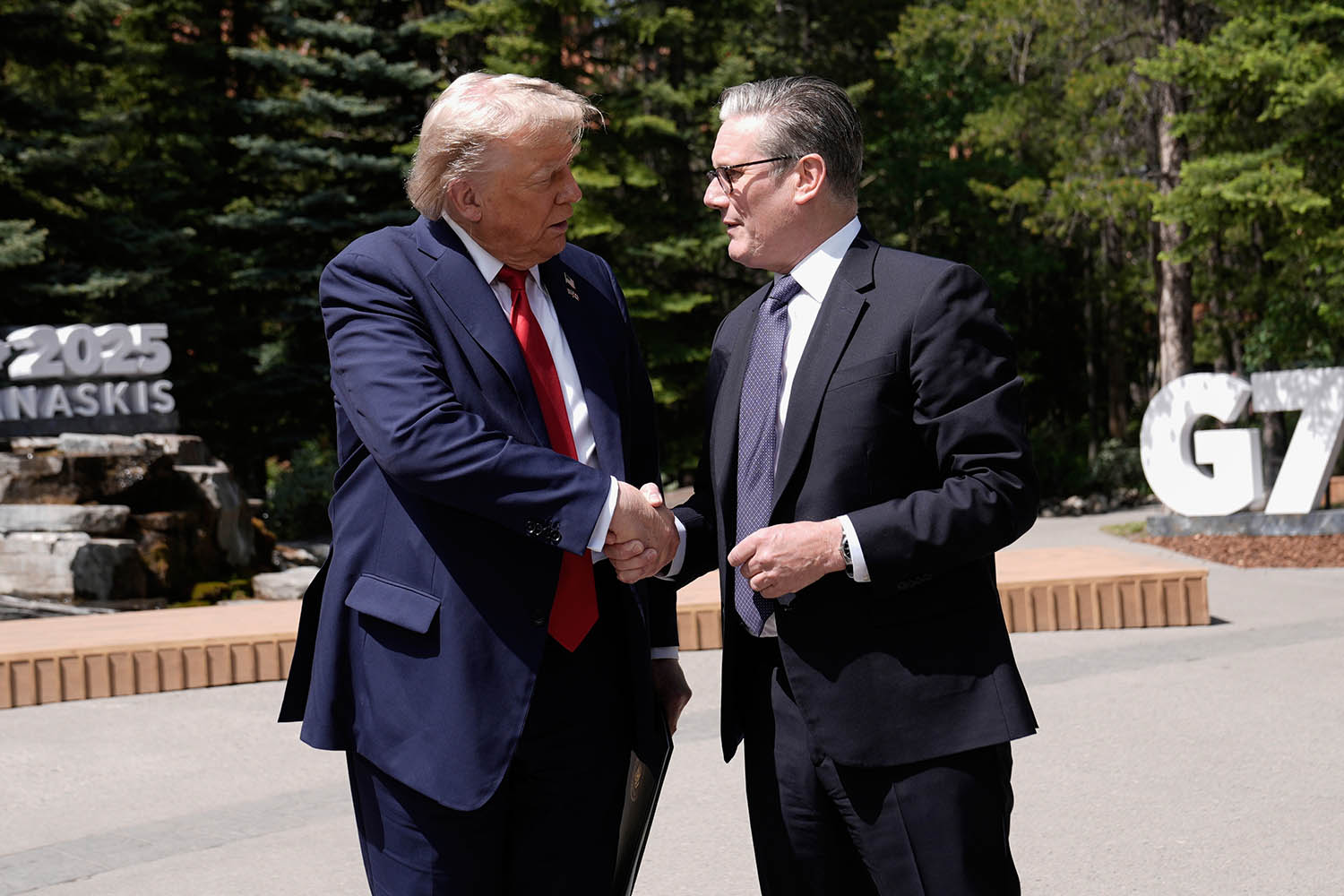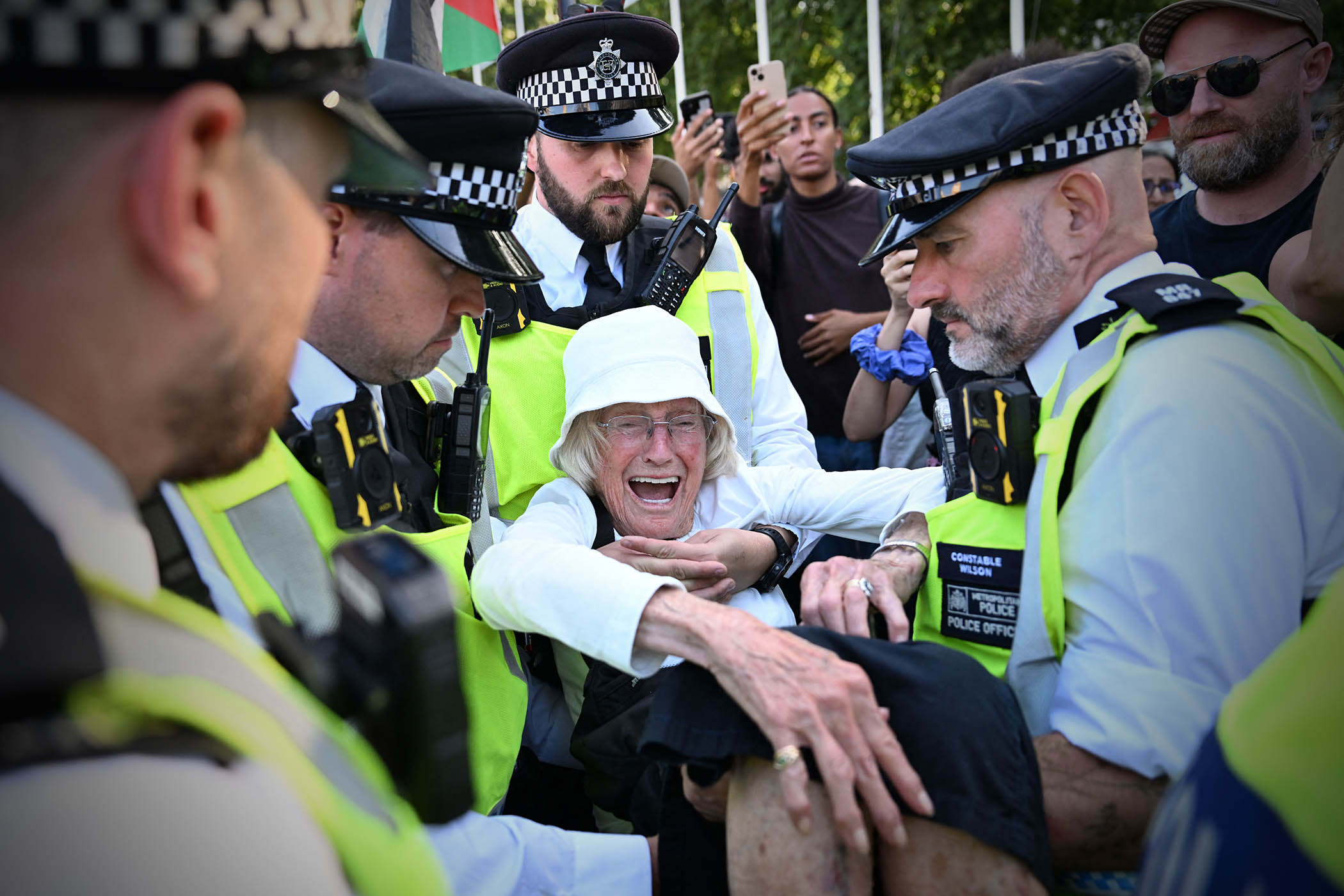In 1950, amid some wild talk in America about how far the US might go to prevail in the Korean War, Clement Attlee left Number 10 in haste to fly to Washington to caution Harry Truman about the use of nuclear weapons. In 1990, when Saddam Hussein ordered Iraq’s army to invade Kuwait, Margaret Thatcher sought to stiffen the spine of George H Bush by telling that US president: “Remember, George, this is no time to go wobbly.”
British prime ministers have sometimes urged muscular action on the White House; at other times they have been the voice of circumspection. On America joining Israel’s war against Iran, Sir Keir Starmer’s role model is not the gung-ho Thatcher, but the restraining Attlee. In the days since Israel launched the conflict, he has relentlessly urged de-escalation while expressing the hope that the US will not pile in against the regime in Tehran when it looks temptingly vulnerable to Washington’s hawks.
Is this having any traction with Donald Trump? The US president seems to be charmed by Sir Keir and regularly says he likes him. But the prime minister will be kidding himself if he thinks he has all that much leverage over the decision-making processes in Trump world. Number 10 put it about that their man played a significant role when the leaders of the G7 had a working dinner in the Canadian Rocky Mountains. Sitting next to the US president, Sir Keir believed he'd won a victory by helping to persuade the American to put his name to a joint statement calling on Israel and Iran to pull back from an all-out conflict. He then told the media that there was “no doubt in my mind” that the US president did not want the war to escalate.
To reject a request for help from the US would inflict a rupture on a relationship which the PM has worked so hard to maintain
To reject a request for help from the US would inflict a rupture on a relationship which the PM has worked so hard to maintain
He should have learned by now that there’s no such thing as a commitment from this American that can’t be unmade within 24 hours. Soon afterwards, Trump abruptly abandoned the G7 and was then posting a demand for “UNCONDITIONAL SURRENDER!” by Iran while suggesting that its Supreme Leader was “an easy target” to “take out”. The self-proclaimed “peacemaker” has reportedly approved a plan of attack, but not made the final decision to pull the trigger on it.
This could be bluff, misdirection or calculated ambiguity designed to psychologically stress the battered regime in Tehran. Or he simply hasn’t made up his mind. We may have been witnesses to a rare example of Trump being entirely truthful when he said: “I may do it, I may not do it. I mean, nobody knows what I am going to do.” People in the British government admit that they have little better idea of what is in the US president’s head from this moment to the next than anyone else who follows his posts on Truth Social.
A US decision to directly enter the conflict would confront Sir Keir with the most acute foreign policy dilemma of a premiership which that has been far more about geopolitics than he anticipated. “I never thought I’d be in this position,” he has been heard to say to his inner circle. British sources believe that the US may ask to use Diego Garcia, the base on the Chagos islands in the Indian Ocean, as a staging post for B-2 Spirit stealth bombers, the only aircraft certified to carry the bunker-busting bombs which that may be capable of penetrating Iran’s subterranean nuclear site buried under a mountain at Fordow. “We’ve not had a request yet,” one cabinet member told me at the end of the week. “If we got a request, I don’t know what would happen.”
One option discussed by ministers is to refuse any UK support. While this would not stop the US, it would be a popular choice with a lot of the Labour leader’s own party. They could point to the example of Harold Wilson, the previous Labour prime minister whom Sir Keir quite often resembles. He rebuffed Lyndon Johnson’s entreaties - “send us some men” - to join the Vietnam War. The regime in Tehran is detestable and it would be a bad turn for the world if it acquired nuclear weaponry, but the doctrine of the pre-emptive strike is not recognised in international law. That will not bother Donald Trump one bit. It will trouble Sir Keir, an opponent of the invasion of Iraq. Richard Hermer, the old friend who is his attorney general, has warned the prime minister about the absence of a legal basis for an assault on Iran.
Against that, most people I speak to in the British military and diplomatic establishment find it inconceivable that the UK would baldly turn down a request from the US which was presented as a “must have” on a “hard” security issue. Rejection would inflict a rupture on a relationship that Sir Keir has worked so hard to maintain. He won’t need telling about the retaliatory damage that the US can inflict on the UK on everything from intelligence co-operation to trade. He also knows that the White House is occupied by a man who has shown himself viciously vindictive towards those who display what he considers to be insufficient fealty.
I am not going to pretend that I know what will happen. My best guess, if push comes to shove, is that Sir Keir will offer limited support that can be presented as “defensive” in character. Splitting the difference between a flat no and an enthusiastic yes carries risk. Any kind of UK backing will give him a share of responsibility for the consequences. Even if Fordow is destroyed, the US cannot be sure that force will eliminate Iran’s nuclear ambitions once and for all. Trying to engineer regime change may fail, or produce a successor we like even less. Iran could attack US and British forces and assets, as well as disrupting gas and oil shipments through the Straits of Hormuz. Any UK collaboration would more closely align this country with an Israeli government whose horrific onslaught in Gaza has caused outrage in much of the world and much of the Labour party.
Donald Trump now says there will be a two-week pause, which gives a short breathing space for diplomacy to work. Sir Keir is fervently hoping that jaw-jaw will spare him from having to make a decision about war-war.
Newsletters
Choose the newsletters you want to receive
View more
For information about how The Observer protects your data, read our Privacy Policy
Photograph by Stefan Rousseau/Pool Photo via AP



